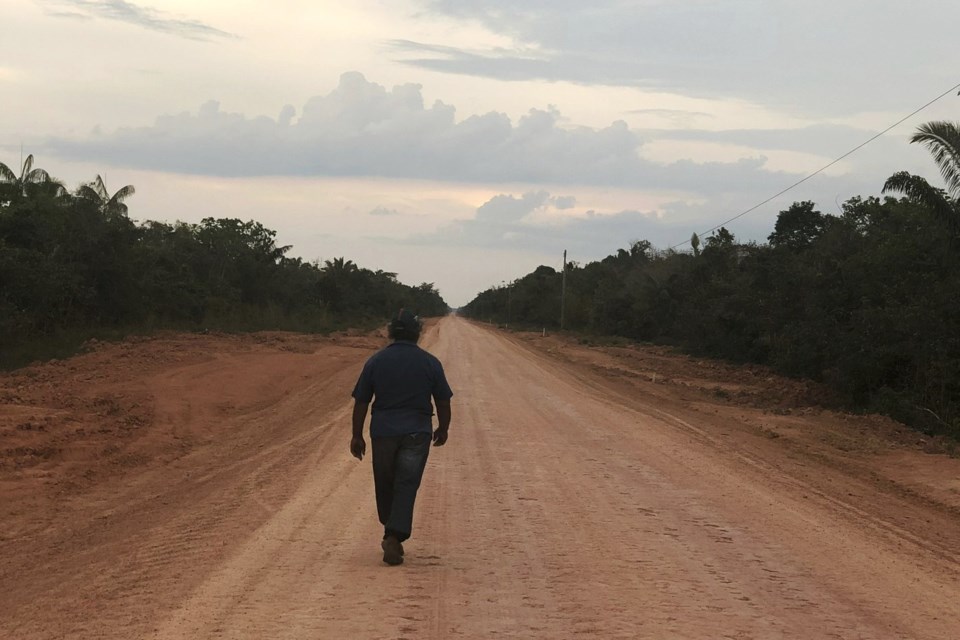BRASILIA, Brazil (AP) — In an unusual action, a Brazilian federal court halted progress on a dirt highway that connects the major city of Manaus to populous regions, ruling it likely will contribute to climate change.
The court suspended on Wednesday a key environmental permit after the Climate Observatory — a network of 107 environmental, civil society and academic groups — argued that the preliminary permit could lead to mass clearing of pristine rainforest.
Amazon deforestation is the major source of Brazil's climate-changing carbon emissions, and most of it occurs along roads, where access is easier and land value is higher.
The license was issued in 2022, during the rule of far-right former President Jair Bolsonaro. In the decision, Federal Judge Maria Elisa Andrade sided with the plaintiff, stating that the license ignored analyses by Brazil’s environmental agency, Ibama, indicating the highway project lacks a governance plan to deter rampant deforestation in the region.
"The absence of a climate impact study diminishes the quality of risk management analyses and undermines the balance between projected impacts and measures to avoid, mitigate and compensate for damage,” the ruling said.
The preliminary license is crucial to the paving project’s ultimate approval, because it means the project has passed economic and environmental reviews. The asphalt work hasn't started yet, and other bureaucratic steps are pending.
With the court decision, the federal government, now under leftist President Luiz Inácio Lula da Silva, will have to reevaluate the highway´s environmental impact on deforestation, Indigenous peoples and climate.
In a statement, Ibama said it wouldn’t comment on the decision until federal judicial officials formally send it.
Suely Araújo, a senior policy advisor at the Climate Observatory and former Ibama president, said it's unprecedented for Brazil´s judiciary to link an infrastructure project to climate change. “There is not enough environmental governance in the region to enforce deforestation control,” she said in a phone interview.
BR-319 — which runs about 560 miles (900 kilometers) — is the only highway connecting Manaus, home to 2.2 million people, with the nation’s urban centers to the south. Half its length is unpaved and becomes impassable during the rainy season, helping to keep forest clear-cutters away.
However, increasing expectations that the road would be paved led to a surge in deforestation in the region in recent years.
Brazil is the world’s fifth-largest emitter of greenhouse gases, contributing nearly 3% of global emissions, according to Climate Watch, an online platform managed by the World Resources Institute. Almost half these emissions stem from destruction of trees in the Amazon rainforest, which reached a 15-year high during Bolsonaro’s presidency.
—-
The Associated Press’ climate and environmental coverage receives financial support from multiple private foundations. AP is solely responsible for all content. Find AP’s for working with philanthropies, a list of supporters and funded coverage areas at .
Fabiano Maisonnave, The Associated Press




